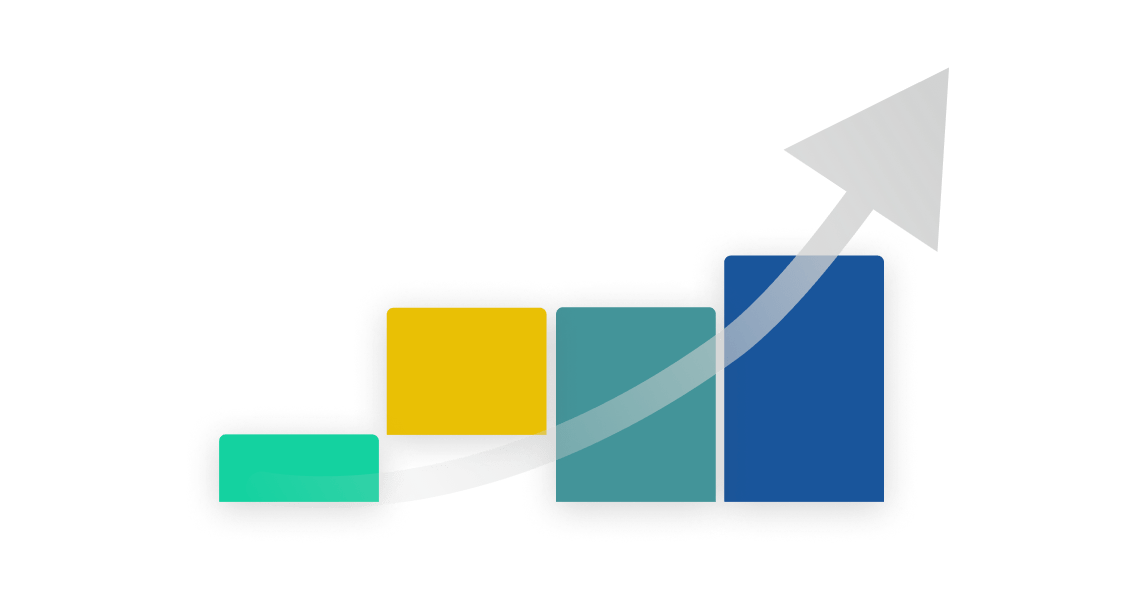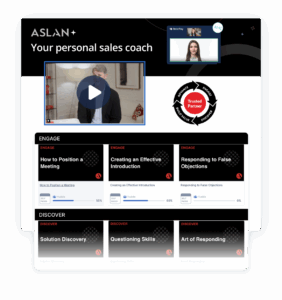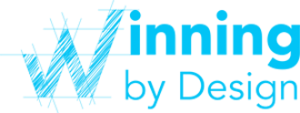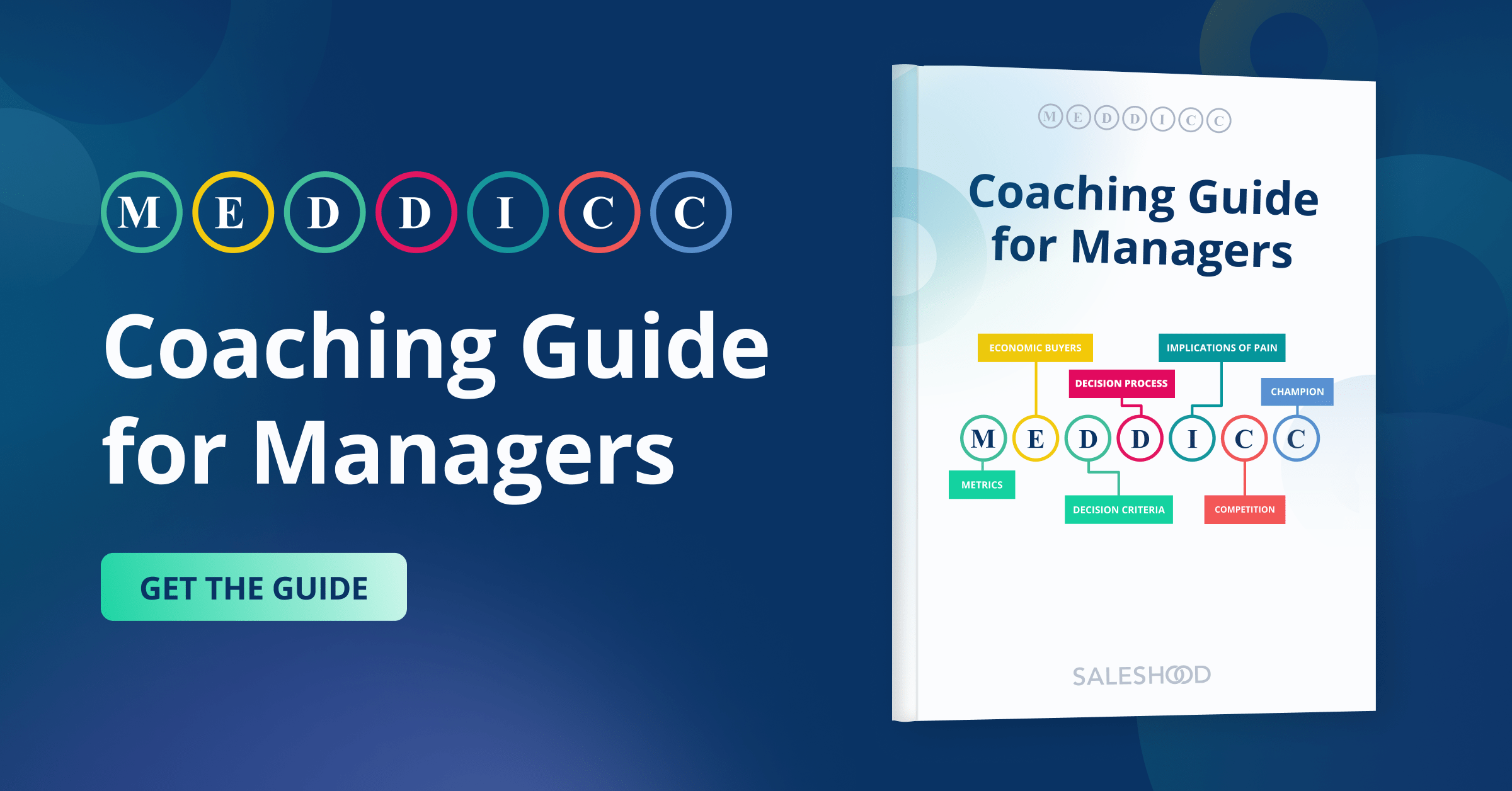What Is Sales Training?
Sales training is the process of developing the knowledge, skills, and behaviors that help sales professionals prospect, qualify, present, negotiate, and close more deals. Today’s top-performing teams treat sales training not as an event, but as a continuous enablement journey—designed to align with their go-to-market strategy and directly impact revenue.
Many sales teams look at sales training programs as an extra chore they need to do. High performing sales team look at sales training initiatives as a must-have sales program proven to improve sales productivity.
Why Sales Training Is a Business Imperative
In a world where buyers are more informed, expectations are higher, and competition is fierce, sales training is more than just a box to check—it’s a strategic differentiator. The best sales teams on the planet have sales training as a central part of the rhythm of the business.
Done right, sales training will:
-
Ramp reps faster and shorten time to first deal
-
Increase sales productivity and pipeline progression
-
Improve conversion rates and average deal size
-
Create consistent sales execution across the team
-
Boost seller confidence and morale
- Create a winning sales culture
-
Reduce turnover and burnout
High-impact training isn’t about teaching scripts. It’s about helping sellers think critically, engage buyers meaningfully, and execute with precision. It’s also about provide a framework for front-line managers to consistently coach their teams.
Essential Sales Training Topics and Skills
The most effective programs focus on real-world skills sellers use every day:
-
Prospecting and outbound messaging
-
Discovery and qualification (e.g., MEDDICC)
-
Sales process execution and pipeline management
-
Value-based storytelling and objection handling
-
Negotiation and closing skills
-
Account management and upsell strategy
These core competencies should be embedded in onboarding, reinforced with practice, and coached consistently.
Sales Training Methodologies That Work
The best sales training programs are grounded in proven methodologies. Here are three top frameworks widely used across B2B organizations:
The Brooks Group
The Brooks Group’s IMPACT Selling® system offers a simple, repeatable framework for executing every stage of the sale—from rapport building to post-sale follow-through. Their training is ideal for companies looking to reinforce foundational skills across diverse sales roles.

Winning by Design
|
Known for their scientific approach to revenue architecture, Winning by Design specializes in sales training tailored for SaaS and recurring revenue businesses. Their programs combine skills development with structural guidance on how to run high-performing sales motions. |
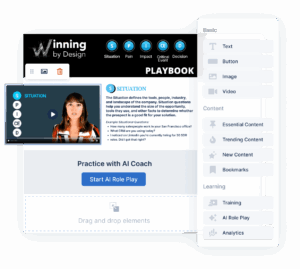 |
Whether you choose ASLAN, Brooks, or Winning by Design, anchoring training in a methodology ensures repeatability, consistency, and alignment across your team.
How to Deliver Sales Training That Sticks
Too often, sales training fails because it’s treated as a one-time workshop. The key to success is operationalizing training with these six pillars:
1. Assess Skills and Readiness
Benchmark sellers with call assessments, role plays, or quizzes to identify where to focus.
2. Customize Sales Training by Role
Different roles = different skill needs. SDRs, AEs, and CSMs need tailored content and learning paths.
3. Deliver in Bite-Sized, Scalable Ways
Micro-learning works. Short modules, followed by practice, win over long training marathons.
4. Incorporate AI and Digital Practice
Use AI role play tools to simulate real scenarios, reinforce learning, and provide instant feedback—at scale.
5. Reinforce Through Coaching and Content
Managers should coach weekly using digital scorecards, guided feedback, and scenario-based debriefs.
6. Measure, Certify, and Improve
Track completion, knowledge checks, role-play scores, and tie training to performance metrics (pipeline created, win rate, deal velocity).
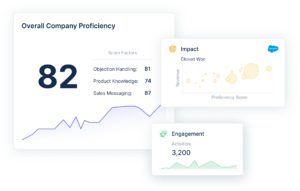
Virtual vs. In-Person Sales Training: Which Is Better?
| Format | Pros | Challenges |
|---|---|---|
| In-Person | Immersive, team-building, high engagement | Travel costs, time out of field, hard to scale |
| Virtual (Live) | Easier to scale, more cost-effective | Requires skilled facilitators and interaction |
| On-Demand | Flexible, repeatable, fits busy rep schedules | Must be engaging and well-designed to avoid drop-off |
Blended learning—combining live sessions, on-demand content, and AI role plays—is the gold standard.
Essential Sales Training Skills to Develop Consultative Sellers
As enablement leaders, our job is to equip our teams with the skills they need to succeed in their sales careers. That starts with foundational sales training—building capabilities in prospecting, discovery, communication, storytelling, and closing.
Whether you’re rolling out a new methodology like The Brooks Group’s IMPACT Selling®, ASLAN’s Other-Centered® Selling, or Winning by Design’s Revenue Architecture framework, success depends on reinforcing core sales behaviors through ongoing training and practice.
Here are essential sales skills to include in your training programs to develop consultative, high-performing sellers.
Sales Prospecting & Pipeline Building
Effective prospecting fuels the top of the funnel, giving sellers more opportunities to hit quota and drive revenue. Make sure your reps are trained to:
-
Research accounts and contacts
-
Write compelling, personalized emails
-
Build multi-step outreach sequences
-
Engage across multiple channels (email, phone, LinkedIn, etc.)
-
Leave voicemails that spark callbacks
Consultative Questioning & Discovery
The foundation of consultative selling is rooted in asking great questions and listening deeply.
Salespeople should learn how to:
-
Ask open-ended, layering, and probing questions
-
Guide the conversation with empathy and intent
-
Uncover business pain, priorities, and decision dynamics
-
Listen actively and capture insights that drive next steps
Storytelling for Sales
Top-performing salespeople are also great storytellers. They connect with buyers emotionally and rationally by sharing relevant customer stories that highlight value and outcomes.
Sales training should focus on teaching reps to:
-
Set the scene with relevant industry, company size, and use case details
-
Highlight business impact using metrics and outcomes
-
Tailor stories to personas and buyer roles
-
Deliver stories with confidence, authenticity, and empathy
Effective Sales Communication
Communication is more than just talking. Help your teams improve their writing, listening, and message delivery skills across the entire sales cycle.
-
Write emails that clearly articulate value
-
Build concise, visually compelling slides
-
Prepare and rehearse customer-facing presentations
-
Adapt tone and message to different buyer personas
Presentation & Facilitation Skills
Sales presentations should feel like conversations, not monologues. The best presenters:
-
Ask questions to engage the audience
-
Read the room and adjust in real time
-
Know when to pause, listen, and invite feedback
-
Deliver value before diving into features
Training should include presentation practice with peer and manager coaching to reinforce habits and build confidence.
Closing & Negotiation
Closing requires a mix of preparation, confidence, and emotional intelligence. Teach your reps how to:
-
Recognize buying signals
-
Handle objections with empathy and insight
-
Use closing techniques that align with buyer psychology
-
Navigate price negotiations and procurement processes
Account Management & Expansion
Retaining and growing existing accounts requires many of the same core sales skills—plus the ability to build long-term relationships and align solutions with evolving customer goals.
Training should cover:
-
Strategic account planning
-
Renewal and upsell conversations
-
Cross-functional collaboration with success and delivery teams
Remote Selling
Virtual selling is here to stay. Reps need to be confident running remote meetings, engaging over video, and using digital tools to keep deals moving.
Sales training should focus on:
-
Video presence and delivery
-
Managing remote buying committees
-
Leveraging digital sales rooms and follow-up tools
-
Staying productive and structured in a remote environment
The Bottom Line
Whether you follow ASLAN’s Other-Centered Selling, The Brooks Group’s IMPACT methodology, or Winning by Design’s science-backed approach, it all comes down to skill development. Invest in foundational sales training that equips your teams to connect, engage, and close—consistently.
Want to see how AI-powered training and coaching can reinforce these sales skills?
Using AI to Supercharge Sales Training
AI is revolutionizing how sales teams train and coach. Here’s how it works in SalesHood:
-
AI Role Play: Simulate cold calls, discovery conversations, or pricing objections—with instant, objective feedback on delivery and message.
-
Smart Recommendations: Suggest the right training content based on deal stage or rep behavior.
-
Manager Insights: Summarize team skill gaps and coaching opportunities without hours of manual review.
Teams using SalesHood AI have reduced ramp time by up to 30% and improved certification rates by over 50%.
Sales Training in Action: StarCompliance’s Results
StarCompliance scaled training with SalesHood and saw measurable impact:
-
2X increase in average selling price
-
17% improvement in new logo win rates
-
35% faster sales cycles
-
Teams hitting quota more consistently
How? By delivering structured onboarding, reinforcing skills with role play, and embedding methodology in the sales process.
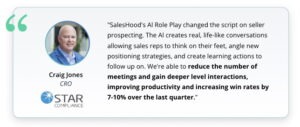
How to Launch or Revamp Your Sales Training Program
-
Align on goals: What outcomes matter—ramp time, win rates, deal size?
-
Choose a methodology: ASLAN, Brooks, or WbD—make it stick across the team.
-
Build a learning journey: Start with onboarding → core skills → advanced topics.
-
Blend formats: Use virtual, in-person, and AI-driven tools for maximum impact.
-
Coach and certify: Managers must be trained to coach—then inspect weekly.
-
Measure ROI: Track training impact using leading (activity) and lagging (revenue) indicators.
Final Thoughts: Training Is the Engine of Sales Execution
The most successful sales teams don’t just hire great sellers—they build them. With the right methodology, platform, and coaching system, sales training becomes a competitive advantage.
Sales training that’s embedded into daily workflows, powered by AI, and aligned to revenue outcomes is what separates good teams from great ones.
Next Step: Let’s Accelerate Your Sales Performance
Want to learn how companies like Copado, Palo Alto, and StarCompliance are transforming training?
Schedule a personalized SalesHood demo and see how our AI-powered platform, combined with content from top training providers, drives real revenue impact.
